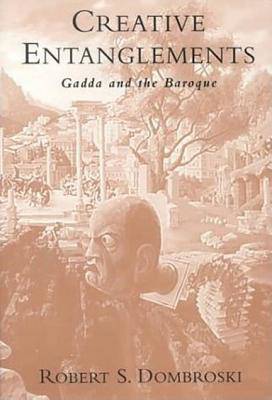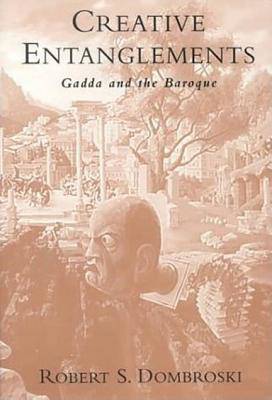
- Retrait gratuit dans votre magasin Club
- 7.000.000 titres dans notre catalogue
- Payer en toute sécurité
- Toujours un magasin près de chez vous
- Retrait gratuit dans votre magasin Club
- 7.000.000 titres dans notre catalogue
- Payer en toute sécurité
- Toujours un magasin près de chez vous
Description
In an imaginary dialogue with his editor, Carlo Emilio Gadda wrote that 'the world is baroque', adding that as a writer he had simply 'perceived and depicted its baroqueness.' For Gadda the baroque was not a style but a reality. In Creative Entanglements Robert Dombroski critically examines the nature of that reality. A profound understanding of the Baroque's critical heritage, in areas as diverse as aesthetics, epistemology, politics, and psychoanalysis, informs this groundbreaking study of Gadda's narrative form. Through sustained readings of such thinkers as Leibnitz, Walter Benjamin, Gilles Deleuze, and Fredric Jameson, Dombroski places Gadda - a consummate modernist who is often misunderstood or marginalized as a literary 'stylist' - in a far-reaching theoretical context. Robert Dombroski identifies Gadda's complex 'baroque' style as not merely an aesthetic conceit, but an expression of modern alienation and of loss, grief, and the need for solitude in the face of a fragmented reality. Gadda's baroque is a narrative representation of the human condition, one that encompasses a multiplicity of viewpoints and the labyrinthine nature of human knowledge.
Spécifications
Parties prenantes
- Auteur(s) :
- Editeur:
Contenu
- Nombre de pages :
- 192
- Langue:
- Anglais
- Collection :
Caractéristiques
- EAN:
- 9780802044907
- Date de parution :
- 04-09-99
- Format:
- Livre relié
- Format numérique:
- Genaaid
- Dimensions :
- 160 mm x 236 mm
- Poids :
- 408 g







